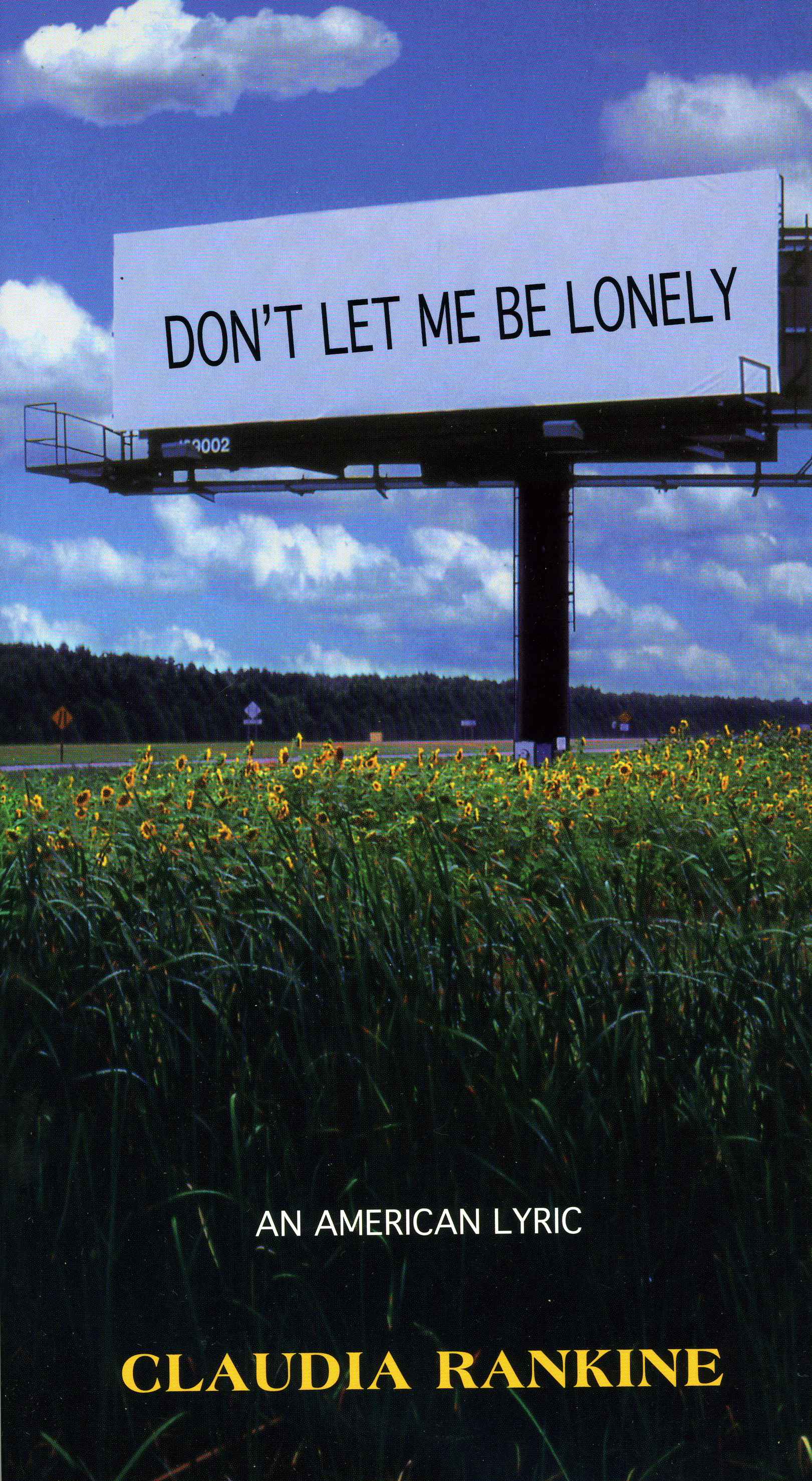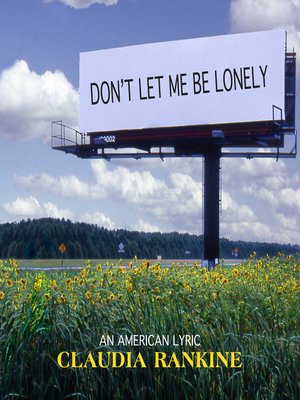



They are fundamental texts for understanding American life in the 21st century, the time of our collective terrorization and confrontation with the nation’s traumatic racial histories. Rankine’s most recent poetry books, Don’t Let Me Be Lonely and Citizen, are both works of collage. Instead, Rankine has crafted a personal poetics for narrating the “assemblages” that we might call experience or ourselves. One part of Rankine’s inventiveness in her early collections comes from her willingness to disrupt readers’ expectations that poems ought to distill singular experiences into sharp, dramatic realizations and ideations that rise toward universal knowledge. ,” a 15-part poem from Plot, Rankine’s speaker grapples with these confluences, thinking, “Today I wake, tomorrow I wake, and still this assemblage, its associated distortions, bewilders me.”Īs the titles of Plot and The End of the Alphabet suggest, Rankine has long been interested in exploring, in her poetics, the intricacies of narrative and linguistic erosion. In “A short narrative of breasts and wombs entitled / Liv Lying on the Floor Looking at. The poems in Rankine’s first three collections are lush with playful obfuscation, experimental forms, and fascinating interrogations of domesticity, the female body, motherhood, marriage, and the confluences of all of the above. Claudia Rankine’s literary catalog includes a play, The White Card (2019) a work of creative nonfiction, Just Us: An American Conversation (2020) and five inventive, difficult, and surprising collections of poetry: Nothing in Nature Is Private (1994), The End of the Alphabet (1998), Plot (2001), Don’t Let Me Be Lonely: An American Lyric (2004), and Citizen: An American Lyric (2014).


 0 kommentar(er)
0 kommentar(er)
